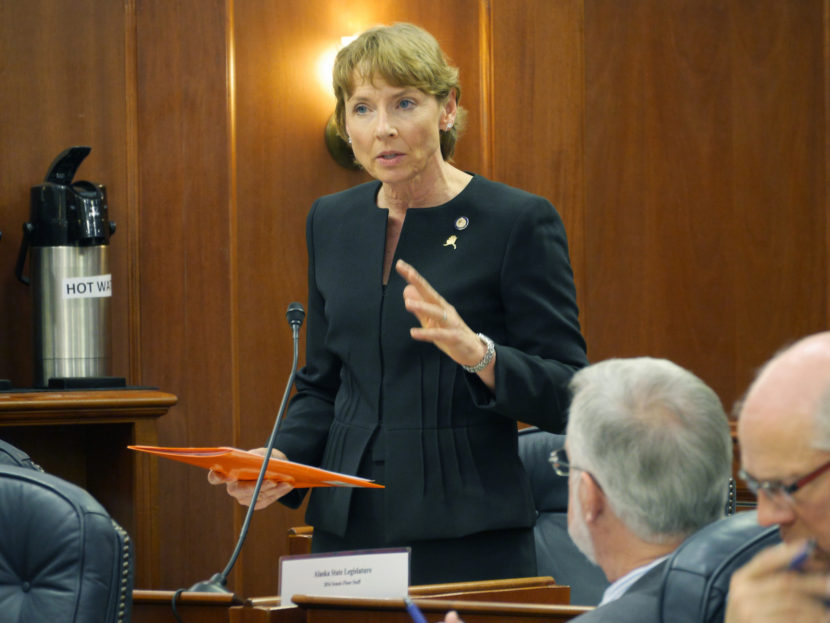
As the Alaska House continues its marathon debate on the oil and gas tax credit bill, the Senate is moving its own version forward, hoping to beat the clock with just four days left in the legislative session.
The Senate bill is still a moving target. It was rushed out of the resources committee this week — the Republican leadership released a new version Tuesday evening and passed it Wednesday, prompting minority Sen. Bill Wielechowski, D-Anchorage, to complain on Twitter that he didn’t even have time to draft amendments.
If Democrats like Wielechowski were unhappy, that was nothing compared to the oil and gas industry.
“This is a nuclear bomb for Cook Inlet,” said Kara Moriarty, president of the Alaska Oil and Gas Association, speaking Tuesday morning about a provision that would zero out all cash support for small companies in Cook Inlet by 2018. To balance the cut, the bill would also set a zero tax regime for the Inlet, collecting revenue only through royalties.
“The [bill] is bad for Alaska,” Moriarty said. “It is destined to make the economic situation for the industry even worse, and when the industry suffers, the state suffers, too.”
Rebecca Logan, general manager of the Alaska Support Industry Alliance, was just as sharp, arguing that lawmakers should have cut more from the state budget.
“You guys didn’t do your job,” she said. “On March 15, when the budget came out of the Senate and was at $4.6 billion, I knew that you were going to come to a point where you would have to come to the oil industry because you didn’t do your job on the budget. And so here we are.”
Sen. Bert Stedman, R-Sitka, said one major issue is how complicated the current oil tax system has become.
For instance, he said, most lawmakers didn’t understand that the state’s 4 percent “minimum tax” on North Slope oil could evaporate at low prices — although companies clearly did.
“There might be folks that look at us and think we’re incompetent and misinformed, or what have you, or we’re lining up with Bernie running for president,” Stedman said. “But a lot of this information is new to elected officials. You can see it on their faces.”
Logan was not impressed.
“You’re elected to make policy calls,” she said. “Regardless of whether you were surprised, and staff people didn’t understand it, the policy call you are faced with right now is, are we going to put more taxes on an industry that is hemorrhaging?”
In fact, the Senate bill doesn’t include a hard 5 percent minimum oil tax requested by the governor — and largely as a result, it would raise significantly less revenue. The bill would bring in about $70 million in 2020, when all of its provisions take full effect, according to an analysis by the Department of Revenue. That’s about a quarter of the governor’s proposal.
But the bill does include a provision to sunset tax incentives for new oil produced on the North Slope, after five years. Those lower taxes are a key part of the current system.
As the bill left the Senate resources committee, Chair Cathy Giessel, R-Anchorage, who is generally sympathetic to the industry, said nobody is happy. But at low oil prices, she said, the current system simply doesn’t work.
“Nobody is winning right now. Nobody is winning with this bill,” Giessel said. “It’s very difficult for me to offer this kind of legislation, knowing what it will do to this resource development. I don’t want to see those jobs lost.”
The bill is now in the hands of the Senate Finance committee, the last stop before it goes to the full Senate.
